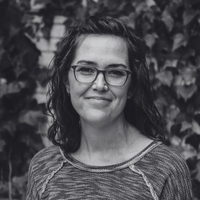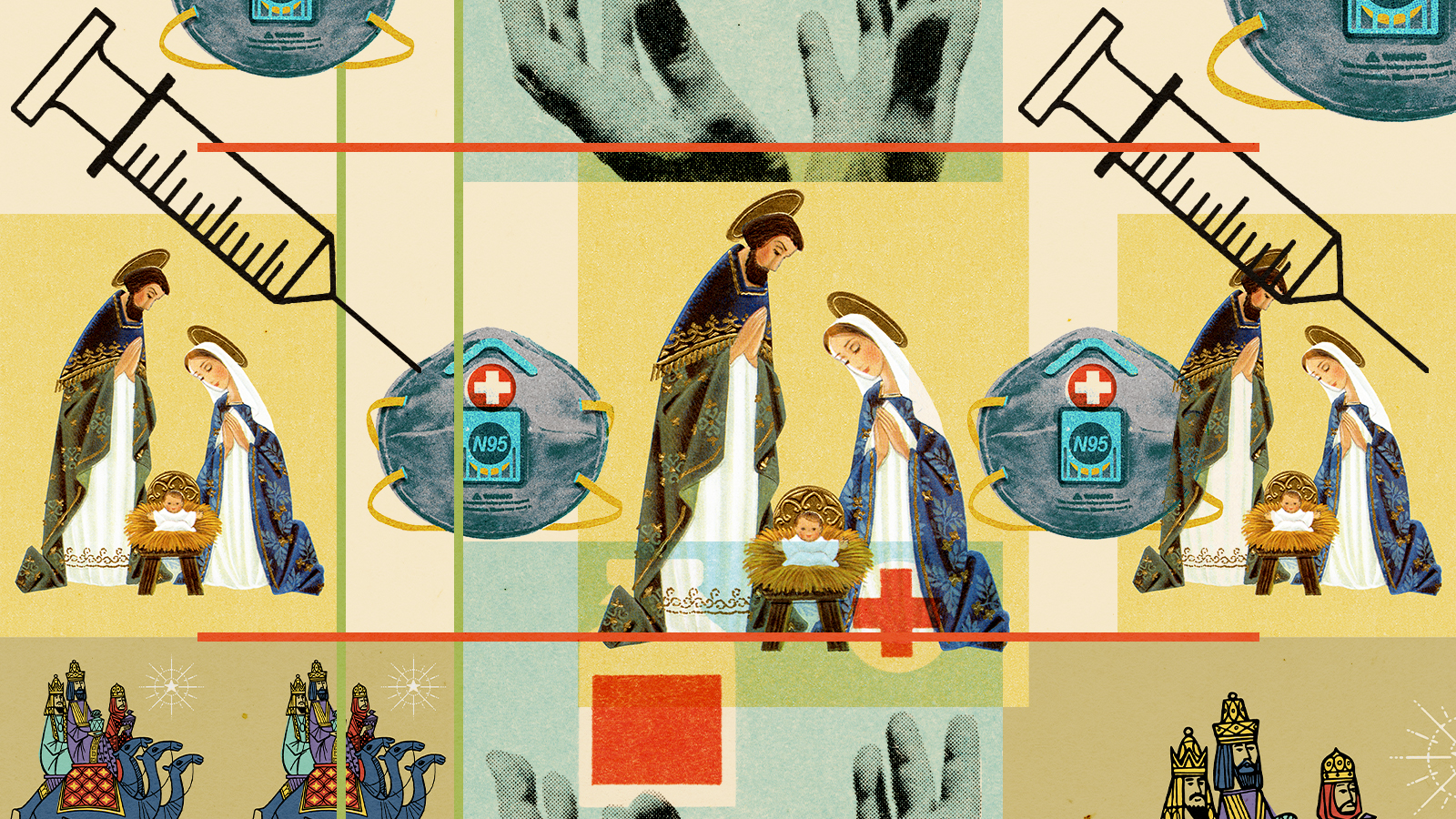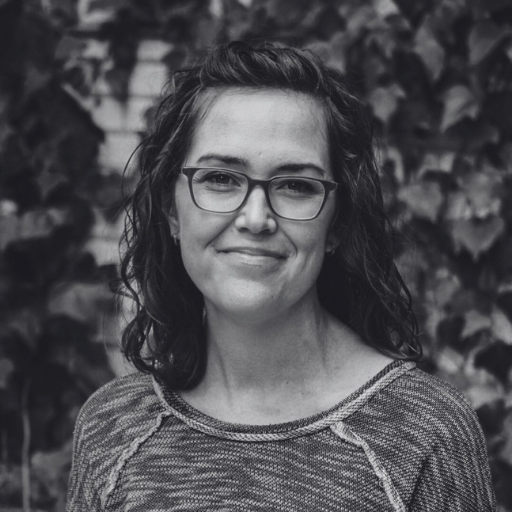The absurdity and necessity of hope in another COVID Christmas
Are we too weary to rejoice?


A free daily email with the biggest news stories of the day – and the best features from TheWeek.com
You are now subscribed
Your newsletter sign-up was successful
Sometimes brutal prairie blizzards descended in the winters of my childhood. With nothing to stop the Texas Panhandle wind except the occasional fence line or solitary house, windblown snow piled up to the eaves. We lived nearly 10 miles from town, and it might be days before county snowplows would get to our highway, leaving us marooned in the meantime. There was always a hint of danger in the air — a generator that might not start, a food shortage, livestock's frozen water troughs. The blizzard could morph these simple inconveniences into emergencies. But this also felt strangely exhilarating. We'd count heads of cattle and call neighbors, checking to make sure all were safe and well, and then we'd hunker down to wait the storm out, knowing it would pass.
It felt like that in the early days of the pandemic when an unexpected natural force, smaller than a snowflake but with even greater fury, suddenly transformed our world. In March and April of 2020, ordinary errands brought with them a hint of danger, and we turned towards each other, even if we were six feet apart.
Craving solace in our neighborhoods, we chalked the cracked-cement pathways into makeshift stained glass, scrawling out messages of hope and perseverance to strangers passing by. We collectively took up the "flatten the curve" battle cry, canceling school and sewing masks and staying home as we waited for the storm to pass. For a few fleeting moments, we were united in our resolve and solidarity Rich or poor, liberal or conservative, a blue check on Twitter or a waitress at a blue-plate-special diner, we were in it together.
The Week
Escape your echo chamber. Get the facts behind the news, plus analysis from multiple perspectives.

Sign up for The Week's Free Newsletters
From our morning news briefing to a weekly Good News Newsletter, get the best of The Week delivered directly to your inbox.
From our morning news briefing to a weekly Good News Newsletter, get the best of The Week delivered directly to your inbox.
Or, at least, that's how I usually remember it now. Like my memories of childhood blizzards, those early pandemic day memories have already taken on a glittery sheen. The boredom and fear and uncertainty and inconvenience I felt have been blanketed over, replaced with the luminescent feeling of collective solidarity, shimmering and transcendent like the particularly blinding sparkle of the blizzard snow when the sun shone bright and clear.
But these days, it all feels less sparkly and more like we're collectively covered in the muddy, post-blizzard sludge. Solidarity has been replaced with suspicion. Resolve with despair. The colorful chalked lines of our stained-glass sidewalks have long since disappeared, and now we're just weary and gray. After two years of restrictions, no one talks about flattening a curve anymore. Instead, it feels like we've split onto different paths while climbing a mountain we may never summit.
Much of the country, including the part where I live in West Texas, has moved on. My children talk about the pandemic in the past tense, something at least a year removed from daily life. Locals take federal guidance on COVID about as seriously as CDC prohibitions regarding eating raw cookie dough — everyone knows there are some risks, but sometimes life calls for taking your chances.
And yet I know that in coastal cities and more progressive enclaves, where COVID concern remains high, communities like ours seem grossly selfish and repulsive and cruel, as though we're a monstrous people who value no life but our own. It's no surprise to me that out of this polarized climate, young Democrats are more likely to "despise" those in the other political party. How could you not, if you believe we don't care whether you live or die?
A free daily email with the biggest news stories of the day – and the best features from TheWeek.com
Maybe if we all could be more honest, we'd admit we're caught in the muck and mire of our messy humanity. Our snow-white best intentions and hopeful resolve has melted into something disappointing and disheartening, and we're left sitting in the mess of it all.
As we close out the second year of this pandemic, our collective anxiety and fear is piling deep. We tell ourselves we should have tried harder to stop the virus. Getting sick feels like a moral failure, and shame afflicts us like a low-grade fever. When we can tolerate our self-cruelty no more, we turn on each other — trying to grasp some control over the uncontrollable by finding someone else to blame. But who among us is capable of stopping a prairie blizzard's fury? An invisible virus' virulence?
And into this chaos comes Christmas. There's a line from the traditional carol "O holy night" that's reverberated in my heart these last few weeks, nearly laughable in its seeming absurdity: A thrill of hope, the weary world rejoices, for yonder breaks a new and glorious morn.
This year, I take particular comfort from knowing Jesus came to a stable, born into the literal muck and mire of our world. Mary and Joseph journeyed to Bethlehem as people under siege of a foreign power. They had very little control over the circumstances of their lives. They must have been exhausted. Scared. Anxious. Weary. As I come to the Christmas story again this year, I can't help but think: me too. We all are.
How can you feel the thrill of hope when life seems to have buried you in anxiety, exhaustion, and fear? What if the new and glorious morn is just another slogging day bringing more bad news? Can weary worlds still rejoice when the logical response is despair?
Yes, because this is not the end of the story. During Advent, the four weeks leading up to Christmas, we wait for Christ's birth with longing and anticipation. These are the honest feelings of a desperate people. On Christmas day we celebrate his birth, even as we continue longing for God to make all things right again.
For 2,000 years, humanity has celebrated Christmas through plagues and pandemics, wars and riots, kingdoms rising and kingdoms falling. And even in the midst of uncertain times — yes, even when we mourn and rage and wonder if we can keep going in our little lives — we find pockets of joy. Babies still offer toothless smiles, and lovers still reach for each other's hands. Oceans still roar and galaxies still swirl over us at night. Snowflakes still melt on our tongues and hot chocolate still tastes best by a fire. In the gray and murky darkness of each night, there's a promise up ahead of a new and glorious morn — and its coming doesn't depend on us working harder or being better.
It's dark now, but look up. Light will break on the horizon, and when it does, we might yet feel a thrill of hope. This is the promise of Christmas. To paraphrase the Presbyterian minister Frederick Buechner: The worst we can imagine isn't the end of the story. The story keeps going, inviting each of us — as fraught and fragile and broken and imperfect as we are — to surrender our striving and rest in the love of God.
The darkness will break. The light will come. The storm will end, and the muddy snow will dry up, and together, we will rejoice.
CORRECTION: A previous version of this article incorrectly described Frederick Buechner as deceased. It has been corrected. We regret the error.
Carrie McKean is a writer who lives in Midland, Texas with her husband and two daughters. Her writing has appeared in The New York Times and Texas Monthly, among other local publications. You can find her on Twitter at @MckeanCarrie or at carriemckean.com.
